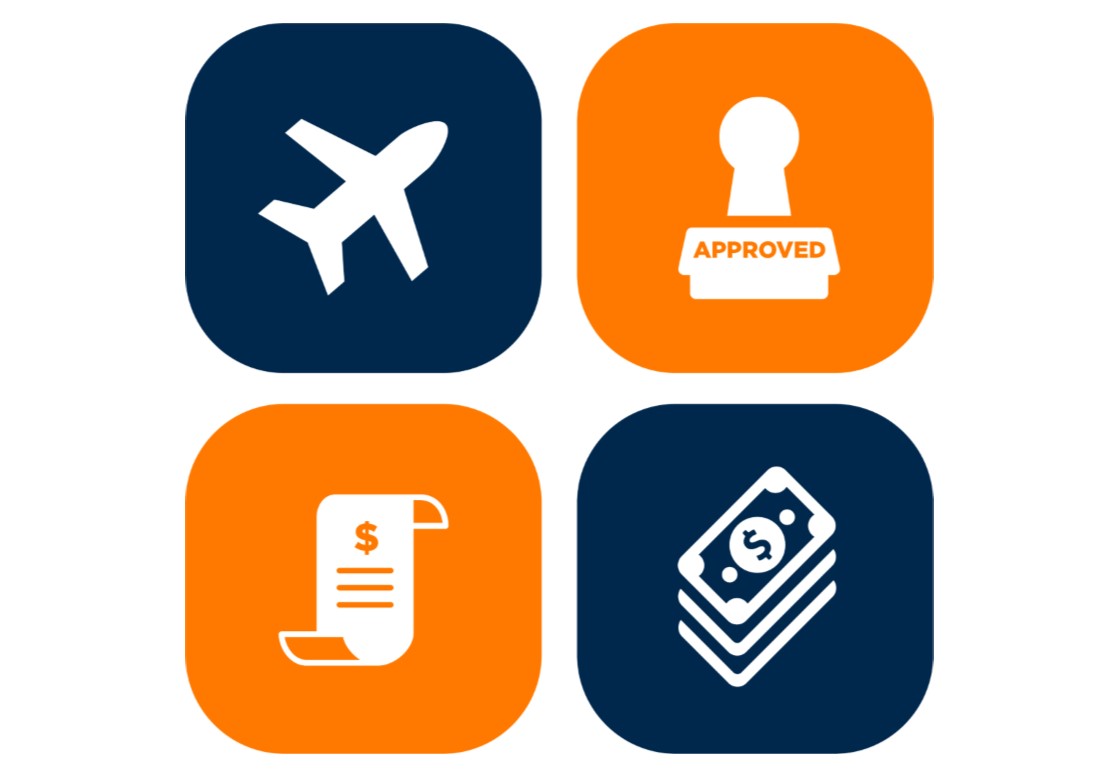FREQUENTLY ASKED QUESTIONS REGARDING Assembly Bill 1887
Please find below a list of questions that the Chancellor's Office (CO) has received as a result of the implementation of this policy. CO staff will continue to update this document as further questions surface. It is recommended that each campus have procedures in place to ensure the requirements of AB1887 are adhered to and that any travel completed under the exceptions are approved and documented.
-
1. What is Assembly Bill 1887 (AB1887)?
AB1887 is a California law that restricts state agencies from requiring its employees to travel to any state that has enacted a law that discriminates on the basis of sexual orientation, gender identity, or gender expression. For a complete text of the bill, please visit the California Legislation information website, http://leginfo.legislature.ca.gov/faces/billNavClient.xhtml?bill_id=201520160AB1887

-
2. When do the AB1887 CSU Travel restrictions go into effect?
AB1887 CSU travel restrictions are effective January 1, 2017.
-
3. Who does AB1887 apply to?
AB1887 applies to all CSU employees, officers, or members, as well a non-employee travelers, including students.
-
4. How does AB1887 affect CSU Travel?
As a result of this new law, the CSU is restricted from requiring employees to travel to certain states. Additionally, the CSU is prohibited from approving state-funded or state-sponsored travel to those states. The state to be traveled to is the deciding factor for the ability to travel, not the funding source for the travel, unless one of the documented exceptions is met (see FAQ #7). Per the memorandum issued by Steve Relyea, dated July 27, 2017 ("Travel Ban and Monies Under GC 1139.8''), monies that are appropriated by the legislature, either as part of the budget process or continuously appropriated (e.g., tuition and fees) may not be used to pay for travel to the current list of banned states unless the travel falls under one of the exceptions noted in the legislation. Monies received by a campus auxiliary organization may be used for such travel, consistent with campus and auxiliary policies. Private funds may also be used for such travel.
-
5. How do I find the states that are on the list?
The complete list of affected states will be maintained on the California State Attorney General's website, https://oag.ca.gov/ab1887
 .
.
-
6. Can I refuse to travel to the states on the California State Attorney General's website?
Yes, the CSU cannot require an employee, officer, or member to travel to the affected state, unless the travel meets one of the exceptions.
-
7. What are the exceptions to AB1887 travel prohibitions?
Exceptions to AB1887 (https://oag.ca.gov/ab1887
 )travel prohibitions are as follows:
)travel prohibitions are as follows:
Enforcement of California law, including auditing and revenue collection.
Litigation.
To meet contractual obligations incurred before January 1, 2017.
To comply with requests by the federal government to appear before committees.
To participate in meetings or training required by a grant or required to maintain grant funding.
To complete job-required training necessary to maintain licensure or similar standards required for holding a position, in the event that comparable training cannot be obtained in California or a different state not affected.
For the protection of public health, welfare, or safety, as determined by the CSU or other state agencies.
Any travel completed using the above exceptions to prohibited travel per the AB, must contain documented approval of the exception.
-
8. What if I booked my travel prior to January 1, 2017, how am I to handle trips to States listed on the Attorney General's website?
If travel arrangements were made and/or paid for to an affected state prior to the law's effective date, then the university will reimburse for all travel expenses incurred before and after the law's effective date. Campuses should have a procedure in place to check the Attorney General's website prior to making any travel reservations.
-
9. What is the effective date for the travel ban to states that were added to the list after January 1, 2017?
The travel ban applies to all states on the Attorney General's list - regardless of when added - as of January 1, 2017. This means that if you were authorized to travel to a state after January 1, 2017, but the state is later added to the banned states list, and you plan to travel to this state after its addition to the list, you may not be reimbursed for the travel and it must be cancelled, approved through the campus exception process, or funded using a private or non-state source.
-
10. Can I invite prospective employee, speakers, or consultants from states on the Attorney General's list?
Yes. AB1887 applies to the states that one is traveling to, not the states that one is traveling from. The CSU can reimburse for travel expenses of someone traveling from a state on the Attorney General's website.
-
11. Can I attend a webinar that is hosted from a State that is on the Attorney General's banned list?
Yes, as long as you are not traveling to a banned state to participate in the webinar.
-
12. Is it okay if a traveler must transit through a banned state in order to attend a conference or meeting in a non-banned state?
Travelers are encouraged to avoid travel into a banned state, however occasionally that is the only viable travel option. Travelers should make sure their travel authorization clearly states the reason for the trip into the banned state and receive approval to proceed.
-
13. An event was planned in a banned state prior to the California Attorney General adding that state to the banned list. Can we participate in the event since it was pre-planned?
In general, it doesn't matter that the event was planned prior to the state being named on the list. If the travel arrangements were not made, and purchased, prior to the state being named on the list this travel will not fit into the "contractual obligation" exception.

